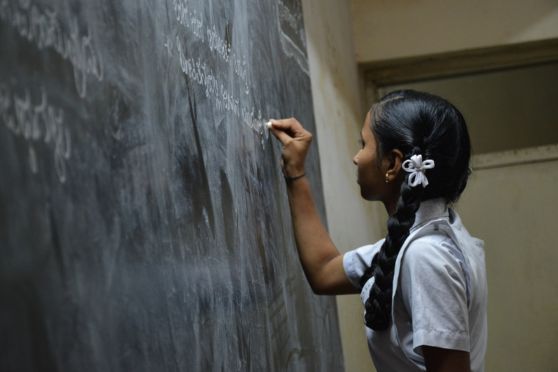Empowering Rural Education in India for a Bright Future


A significant portion of the population of our country resides in the vast landscapes of rural India, making the enhancement of rural education a critical imperative. As we journey through the dynamic 21st century, the realisation dawns upon us that the skills required for a successful career extend beyond mere foundational literacy and numeracy (FLN).
Acknowledging the challenges faced by rural schools, including insufficient infrastructure, a shortage of well-trained educators, imbalanced learner-educator ratios, and various other obstacles, we recognise the need for transformative measures. These challenges collectively contribute to a gap in the quality of education in rural areas. According to the ASER 2022 report, only 42.8% of grade V students can read at a grade II level, and a mere 25.6% can perform division.
The urgency to address and transform the education system in rural India cannot be overstated.
To propel rural education forward, several key areas require focused attention:
Enhancing Physical and Educational Infrastructure:
In a landscape with a multitude of schools, the current infrastructure falls short in preparing children for 21st-century education. More than 21% of schools lack access to even a basic library, hindering students from essential resources for learning and exploration. An alarming 77% of schools lack proper computer facilities, obstructing students from acquiring vital digital literacy skills.
Developing 21st Century Skills:
While basic education is crucial, there is a need to go beyond and instill skills such as creative and critical thinking, collaboration, innovation, and ICT skills.
Fostering Entrepreneurial Skills:
To broaden opportunities for rural children, there is a necessity to shift focus from a sole emphasis on jobs to nurturing entrepreneurial skills.
Career Guidance:
Expand horizons for children by providing insights into a diverse range of career options available in the 21st century. Facilitate mentorship programs to guide children towards their future paths.
Post-School Parental Support:
Recognise and address the challenges parents face in being actively involved in their children's education. Encourage and support parents in understanding the importance of education and its role in their children's future.
Mitigating Financial Constraints:
Provide accessible and affordable options for further schooling to prevent dropouts due to financial constraints. Ensure that both girls and boys have equal access to education.
Strengthening English Communication:
Recognise the growing importance of the English language and bridge the gap by integrating it into the curriculum. Empower students with English communication skills, thereby enhancing their prospects in higher education and top-tier careers. By addressing these challenges proactively, we can create a positive trajectory for rural education, ensuring that every child has the opportunity to build a successful and fulfilling future."
About the author: Mr. Santosh Phad is the Founder and Director of Thinksharp Foundation. He is a social entrepreneur who hails from a very modest background in the small village of Mandwa, Parli-Vaijnath, Maharashtra. With his commitment to giving back to society, he founded the Thinksharp Foundation in 2011. He possesses over 10 years of experience in both the financial industry and the social sector.